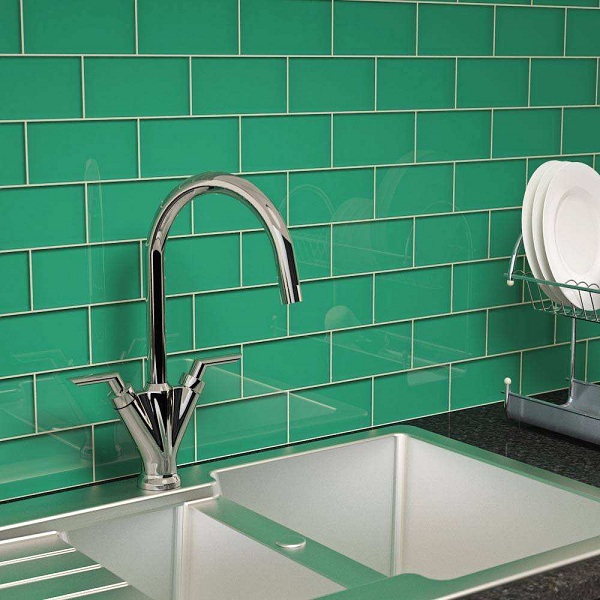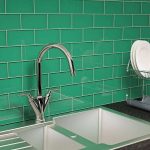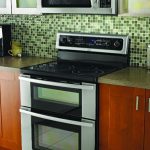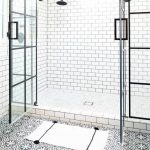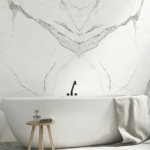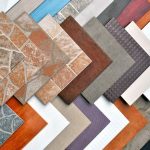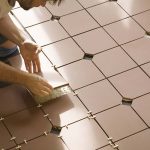Tiles are a type of flooring that is made of hard-wearing material such as metal, stone, ceramic or marble. Tiles are also a choice for roof solutions, walls and even on table tops. It is a popular cover or protection solution and is sometimes even used for decorative purposes. We must have heard of the floor and wall tiles. There is practically no difference between the two.
However, the floor tiles are quite strong and protect against wear. These can also be made from marble, porcelain and other natural stones such as travertine.
Types of tiles and uses:
So which ones are strong? What should you go to for an office and home? Below are some types of tiles you may want to know about so that you can make an informed choice the next time you buy.
1. Ceramic tiles:
Ceramic tiles are made of clay and are permanently hardened by heat. They also have a decorative glaze and are molded into shape and later fired in an oven. These are either glazed or unglazed. However, houses prefer the glazed ceramic tiles. They are known for their durability, but less than that of porcelain.
- Advantages: Ceramic tiles are cheaper and less dense, making them easy to cut. Glazed ceramic tiles are a popular choice for indoor use and for flooring.
- Disadvantage: The many size and color differences between ceramic tiles can make it difficult to use. They are hard and difficult to crack or break.
2. Porcelain tiles:
These tiles are not as soft as the ceramic tiles. The tile is exposed to a high temperature, which gives the tile its strength and durability. They are also very dense and therefore make it more resistant to moisture and cracks. Porcelain is tough and less porous than ceramic tiles. Porcelain also requires more experience than ceramics or other categories to get them into shape.
- Advantages: Due to its composition, it is also considered to be durable and is more suitable for heavy use. The high feldspar content makes it particularly durable than any other tile. They are a popular choice for bathroom floors and offer good water and stain resistance.
- Disadvantage: They are expensive and may require experienced people to cut.
3. Cement tiles:
Cement tiles do not use clay. It also has no heating process. A hydraulic press is usually used for this. Oven or glaze is also not used or preferred. Some cement tiles are also handmade, which gives them their uniqueness. They come in many colors and are particularly known for their designs and colors.
- Advantages: They are best suited to cover the floor and offer good durability. They can also be used in damp areas such as the bathroom, the shower screen or your steam bath. Cement tiles are also sealed because they are porous, and this makes them more resistant to stains from oil or water.
- Disadvantage: They are generally not preferred in areas subject to hard freezing.
4. Stone tiles:
Stone tiles are certainly beautiful. They consist of many natural stones such as marble, granite or limestone. They are cut from slabs and stones using high-speed diamond-tipped equipment. You may also find that they have naturally occurring cracks. Granite tiles are a popular choice for countertops because they are antibacterial and are not easily affected by water. Those made of marble look beautiful and luxurious, and those made of sandstone are popular for their durability and grain-like appearance. They are used for internal purposes or even as decorative pieces.
- Advantages: Cleaning stone tiles is fairly easy. You can clean them with a damp mop and it dries out in no time.
- Disadvantage: Not all stone tiles are durable and are less durable than ceramics or porcelain.
5.Wooden tiles:
The other tile that is often considered a classic tile is the wooden tile. They are beautiful and give your house a classic touch. They consist of plywood boards, original wood or even synthetic wood. They are also made of ceramic or porcelain and resemble wood for reasons of durability. The main reason for this is that the hardwood is known to suffer from weaknesses such as weather changes that can potentially cause the wood to expand. Depending on the material from which it is made, wooden tiles can be used indoors, in the bathroom or outdoors. For example, ceramic wood is a preferred choice for indoors and sometimes even for bathrooms.
- Advantages: They offer double resistance from wood and the material from which it is made.
- Disadvantage: They are expensive when they need to be installed or manufactured. They can also be subject to many restrictions on where you can use them in your home.
6. Glass tiles:
Glass tiles mainly serve as decorative purposes on walls. They are popular for their good looks and longevity. They are also moisture resistant and firm. They can be used in your bathroom walls, swimming surveys and your kitchen walls. The rooms also look brighter and reflect light. They are easy to wipe and do not stain easily.
- Advantages: They are known for their versatility and can be used in practically any room. They’re also easy to shape and the finish you choose offers a lot more styles.
- Disadvantage: They are probably more expensive than ceramics or porcelain. Some of them, when exposed to abrasive cleaning equipment, can scratch the surface.
7. Terrazzo tiles:
They consist of composite materials made of glass, granite or marble. They are mixed in a cement mill and poured into a casting or poured in place and then hydraulically pressed into molds. They are used for floor and wall treatments. However, they are one of the most durable tile shapes today.
- Advantages: You have a good life and are unique and beautiful.
- Disadvantage: They are slippery and therefore cause falls, which makes them less suitable as flooring.
8. Metal tiles:
These are the tiles that are made of metal. Some of them also use alloys and other composite materials. They are used in kitchens and bathrooms and are known for their shiny texture. They are also used as a roof solution. They are extremely durable against rain or hail and can be adapted to your needs.
- Advantages: They are dirt and moisture resistant and offer excellent durability. They are also fireproof.
- Disadvantage: They are expensive and noisy when it rains heavily. They also tend to bump when hail falls on them by force.
Tips for choosing your tiles
Well, we know how you’re probably still confused when you need to pick a tile. Here are some tips that you can read before making a selection.
- If you’re looking for a floor solution, stoneware tiles are definitely the best. They are very durable and can withstand traffic. If you are looking for a wall tile, ceramic or porcelain tiles are the best as they are non-porous and do not absorb stains.
- Remember to buy a little 5-10% more tiles than you actually need. This will fix the cuts and breaks.
- Choosing the right color also plays a role. Some of them give the room a spacious look and make it appear brighter, while others make your room appear boring.
- The other important point to consider is the water absorption test. Tiles with less water absorption have a longer lifespan.
This is about the many types of tiles you can choose from. Remember to take your budget into account when choosing. You can also contact shopkeepers to find the right ones that fit your home and needs. Some of them are known for their beauty, while others are known for their durability. So you really have a choice and have to decide what is important to you.
 sanideas.com Fashion Ideas
sanideas.com Fashion Ideas
